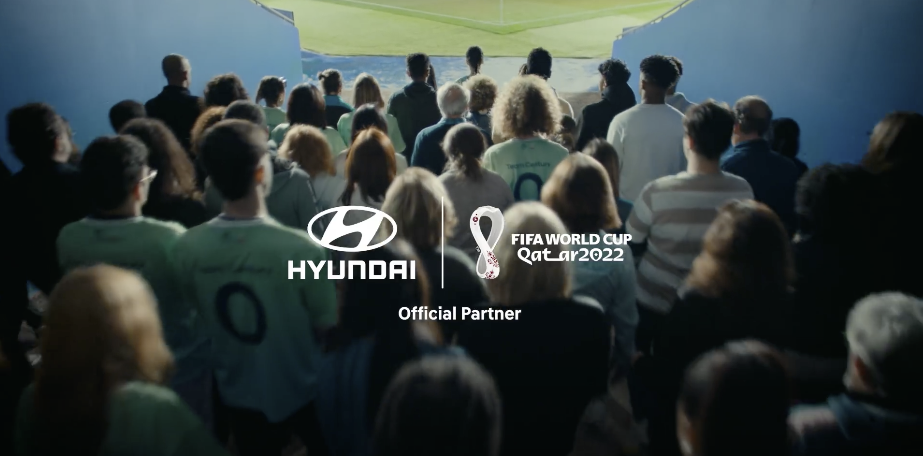Badvert of the Month: Hyundai’s (own) “Goal of the Century”
Location: YouTube
Football fever is beginning to build with less than 50 days until the Men’s FIFA World Cup in Qatar kicks-off. While the dodgy carbon neutrality claims of the Qatar World Cup have been rightly scorned, the litany of high-carbon tournament sponsors are getting less attention.
Sustainability or greenwash?
One of FIFA World Cup official partners, car manufacturer Hyundai, has launched its “Goal of the Century” ad campaign, which brings together K-Pop superstars BTS and England footballing legend, Steven Gerrard, to - in Hyundai’s words - achieve the goal of “a united world for sustainability”.
At the World Cup, Hyundai is keen to flex its sustainability credentials through providing 592 vehicles to transport for VIPs and event officials during the proceedings. These vehicles, according to Hyundai, will be “eco-friendly” but will include not-so-eco-friendly hybrid engine models.
Sustainability, according to the advert, is a “goal we at Hyundai are committed to, driven by heart and technical prowess”. But how committed is Hyundai? The auto manufacturer may have closed their research facility for petrol and diesel cars, but Hyundai has no immediate plans to accelerate the shift away from the internal combustion engine. In fact, the carmaker will keep selling petrol and diesel vehicles in Europe until 2035 and is not set to go fully electric until 2040. Competitors, such as Volvo and Cadillac, are eyeing a fully electric fleet by 2030.
Not-so-eco-friendly vehicles
More recently, Hyundai was under fire for trying to open a Liquified Natural Gas (LNG) powerplant to fuel the largest car factory in the world in Ulsan, South Korea, a facility that churns out 1.4 million vehicles a year. An interesting move considering Hyundai’s pledge to achieve carbon neutral operational emissions by 2045, with LNG power plants taking five years to become operational and having an average lifespan of 25 years on average.
Adding insult to injury, Hyundai has just rolled out a new range of petrol and diesel SUVs worldwide. The scale at which SUVs are being purchased is wreaking havoc on the climate and disrupting efforts to decarbonise transport. In the year 2020, despite record breaking sales of electric vehicles (EVs), the sale of SUVs around the world cancelled out all the climate gains made by bumper EV sales. What’s more, SUVs are twice as lethal in road traffic collisions, take up an ever-increasing amount of public space, and - even when fully electrified - present a monumental waste of energy amid an energy crisis.
Hyundai even has plans afoot to roll out a hydrogen-powered police bus and four-winged drone. Using hydrogen for transport has been denounced by many experts due to its inefficiencies compared to electrification, and the potential dangers involved. Hydrogen, which is produced using fossil fuels, is thought to be a technology pushed by fossil fuel interests due to its large-scale production requiring gas in the near and medium term. Today, 96% of hydrogen is made from fossil fuels, mainly gas but also coal. By incorporating hydrogen technology into their vehicle fleet, Hyundai is justifying further fossil fuel use.
Hyundai has launched a range of electric vehicles and hybrid vehicles in an effort to capture the ballooning EV market that is currently dominated by Tesla in Europe and North America, with Chinese EV models becoming ubiquitous across Asia. This “sustainable” push from Hyundai is visible in their advertising efforts, with “sustainable socials” a key target audience for advertising their products too. This audience is, according to Hyundai, a group “that is highly motivated by a social consciousness and believes in leading engaged, sustainable lifestyles for the good of all”.
With this being so, the ‘Goal of the Century’ ad campaign will likely be the first of many from Hyundai. What is certain, though, is that this level of greenwash will be an own-goal for our climate.
Company Background:
Hyundai is a South Korean multinational automotive manufacturer headquartered in Seoul, South Korea. Hyundai Motor Company was founded in 1967 and has sold vehicles in 193 countries. The company owns and operates the largest car manufacturing facility in the world in Ulsan, South Korea. The company employs about 75,000 people worldwide. In 2011, Hyundai sold 4.05 million cars in the world and became the fourth largest carmaker behind GM, Volkswagen and Toyota.
After the 1997 Asian financial crisis, the Group spun off some of its most renowned businesses. Before the Group’s restructuring in 1999, Hyundai's major areas of activity included shipbuilding, car manufacture, construction, retailing, finance, and electronics.
Hyundai has achieved remarkable growth in European markets of late. In 2021, the company broke record market shares in Germany, Spain, Italy, France, and the UK. In Germany, a state whose national identity is deeply enmeshed in domestic auto manufacturing, Hyundai made up over 4 percent of all cars sold in 2021.


